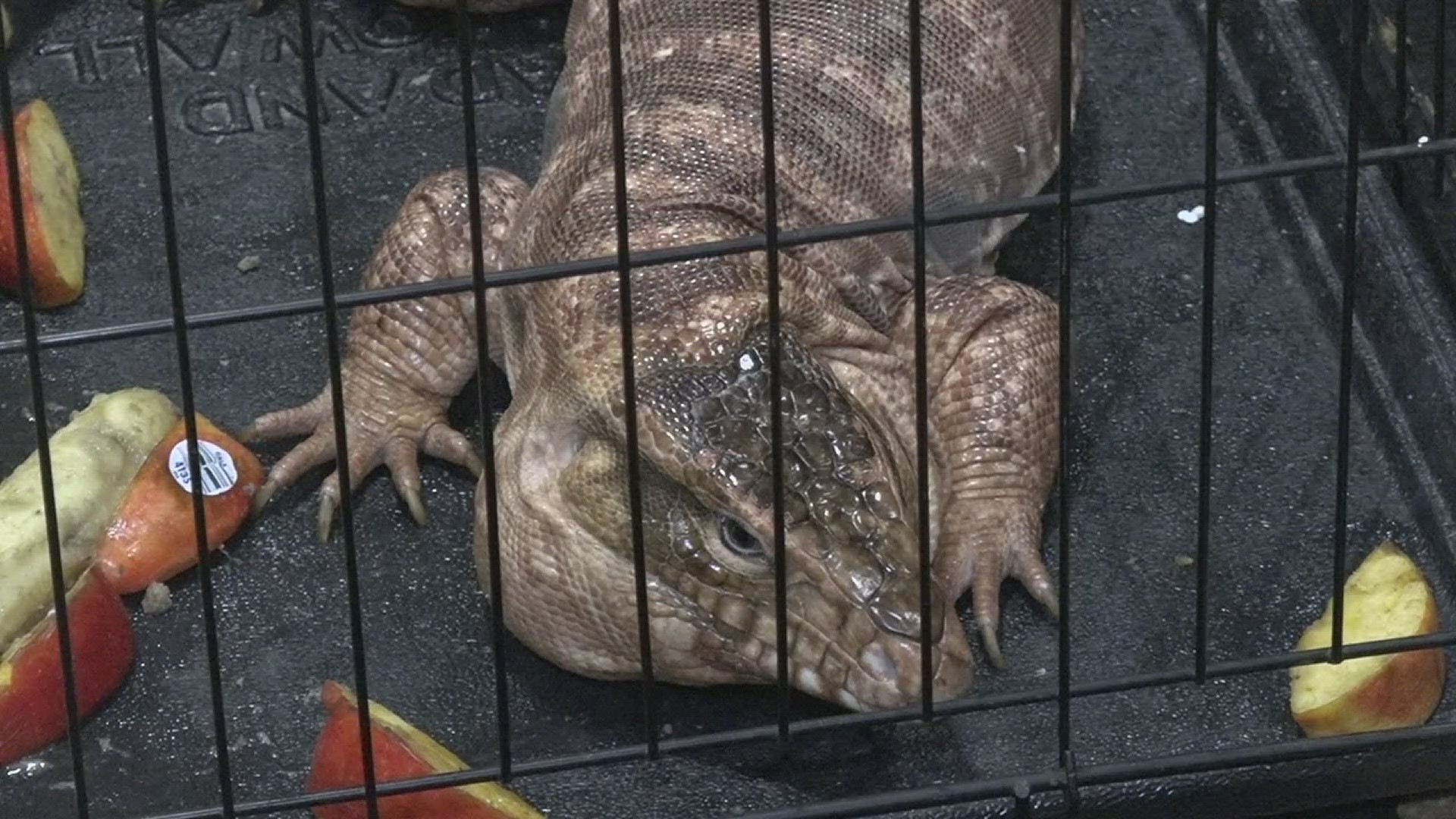BEAUMONT, Texas — A large Red tegu lizard found on a Beaumont street this week is now safe and being cared for in a foster home.
A Beaumont man found the Red tegu lizard Wednesday night after his cousin nearly ran it over, at first thinking it may have been a cat.
When Mario Torres' cousin was returning from the store Wednesday night he called Torres to say he almost ran over a "giant lizard," Torres told 12News.
Torres and his cousin picked up the large reptile to keep it from getting run over he said.
"I tried to see how close it let me get. I started kind of petting it's tail, and I saw that it didn't try to bite me or anything. Then, I finally just picked it up and put it in my truck," he said.
Torres reached out to Beaumont Animal Care and they posted a photo of the lizard on Facebook, hoping to find its owner.
Davied Shay, of Mauriceville, who deals in exotic pets, reached out to Torres and offered to take the lizard in and foster it.
Shay tells 12News the lizard is a Red tegu, which is native to Argentina and is not a Gold tegu as previously reported.
He has named the found lizard, MacGyver, and tells 12News that the reptile seemed very hungry and thirsty when he got him.
The Red tegu has been sleeping a lot as he should be in hibernation right now Shay said.
If the lizard had not been found Shay says he believes it would have died as it is getting too cold for them to survive in Southeast Texas.
He owns two female Red tegu lizards himself, but they are currently hibernating Shay told 12News Friday morning.
He also believes the reptile may have escaped or been dumped by its owner as keeping and feeding them can become expensive.
Shay feeds them fish and rats as well as fruits and vegetables.
The Red tegu, which can grow to six feet long, can make a very good pet Shay tells 12News.
He says they can be very friendly and enjoy attention describing them as dog-like saying you could take one for a walk on a leash.
Gary Saurage, of gator Country, tells 12News it gets too cold in Southeast Texas for these lizards, forcing them to go into hibernation and be "inactive."
"They're not a threat, especially when it comes to cold weather," he said.

